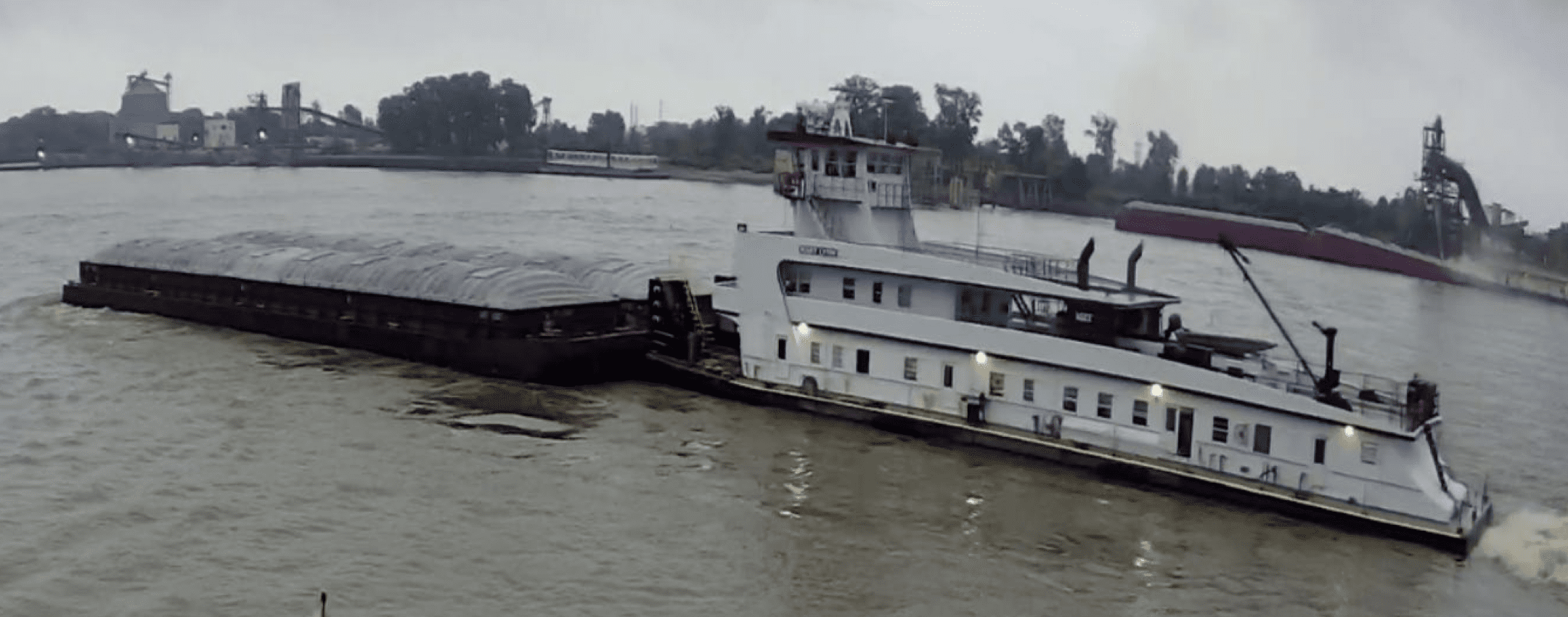Stena Immaculate Sold for Repairs After Fatal North Sea Collision
Stena Bulk has announced that the oil tanker Stena Immaculate has been sold to a buyer who will undertake repairs at Desan Shipyard. Prior to the transfer, the vessel was...

A fire aboard the towing vessel Mary Lynn started after its fatigued chief engineer inadvertently left the day tank overflow valves to the storage tanks closed, the National Transportation Safety Board said Wednesday. This caused an overpressurization of the main engine’s fuel system that ultimately led to the ignition of spraying diesel fuel onto an uninsulated engine component.
On May 18, 2021?, the towing vessel Mary Lynn was pushing two barges near mile 176 on the Upper Mississippi River near St. Louis, Missouri when a fire broke out in the engine room. A Good Samaritan towing vessel and a St. Louis Fire Department fire boat helped extinguish the fire.
No pollution or injuries to the six-member crew were reported and the fire resulted in damages of over $700,000.
Marine Investigation Report 22/17, released Wednesday, details the NTSB’s investigation into the accident.

?After dropping off barges, Mary Lynn tied up at the Gasconade Street fleet where the crew planned to take on fuel, lube oil and potable water from a delivery tug and barge. The delivery tug arrived about 2.5 hours early, as the chief engineer was dewatering the fuel storage tanks. While preparing for the delivery, the chief engineer inadvertently left the day tank overflow valves to the fuel storage tanks closed.
Almost immediately after the Mary Lynn got under way, the starboard main engine failed to meet the ordered rpm, and the captain brought the vessel back to the fleeting area to troubleshoot the issue. While the chief engineer was troubleshooting, he opened the suction valves to one of the tow’s fuel storage tanks and started a fuel transfer pump, which had been turned off during fueling and had not been restarted before getting under way, as was the vessel’s standard procedure.
About 13 minutes after the Mary Lynn got back under way, the chief engineer saw a fuel filter sight glass bowl blow off the port main engine fuel header, causing fuel to spray and ignite. The chief engineer evacuated the space. The vessel lost electrical power shortly after, and nearby Good Samaritan vessels responded to provide firefighting and tow assistance efforts.
A post fire examination found that a section of exhaust header between the port main engine block and horizontal portions of the exhaust manifold, as well as nearby cylinder test valves, did not have thermal protection. The fire likely originated near these uninsulated components.
NTSB investigators also concluded the chief engineer was likely affected by acute fatigue as he reported receiving less than five hours of sleep in the 24 hours preceding the fire. This fatigue likely impacted the chief engineer’s attention, memory and performance of complex tasks.
The NTSB determined the probable cause of the engine room fire on board the Mary Lynn was the overpressurization of the fuel day tank (which did not have an independent vent) and a main engine fuel return system when the fatigued chief engineer inadvertently left the day tank overflow valves to the storage tanks closed, which ultimately led to ignition of spraying diesel fuel from a main engine’s fuel system onto an uninsulated engine component.
“Subchapter M regulations for towing vessels require vessels built after 2000 to have vents for each fuel tank,” the report said. “Regulations for vessels ranging from small passenger vessels to cargo ships require that fuel tanks be independently vented from the highest point of the tank to atmosphere on a weather deck. Tank ventilation is important to ensure a valve line up error does not lead to the overpressurization of or vacuum in a fuel tank. Operators should be aware of their fuel tank ventilation system arrangements. On vessels without independent fuel day tank ventilation, it is critical to ensure proper valve position during transfer and operation of the fuel system.”
Read the report: Marine Investigation Report 22/17

Sign up for gCaptain’s newsletter and never miss an update

Subscribe to gCaptain Daily and stay informed with the latest global maritime and offshore news
Essential news coupled with the finest maritime content sourced from across the globe.
Sign Up